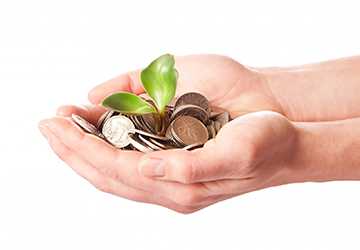The cash App is one of the most popular mobile payment and financial management tools. Tens of millions worldwide have embraced this powerful, convenient way to manage their finances and send money securely. But how does Cash App make money?
In this blog post, we will look at how Cash App generates revenue, explore its business model, and uncover insights into why they continue to be such a success. Keep reading to learn more about how Cash App earns its profits – you may glean a few tips for your potential revenue streams!
What is Cash App, and how does it work

Cash App is a financial services platform owned by Square, Inc. It allows users to transfer money to other individuals and businesses using the app, deposit checks, buy stocks, and even pay bills. Cash App also offers a debit card that can be used at any store or online retailer that accepts major credit cards.
Cash App’s business model is largely based on a simple fee structure: it charges a small fee each time money is sent or received. These fees often range from 1.5-3% of the amount transferred. Cash App also makes money by charging interest for instant deposits, investing, and using debit cards.
In addition to these fees, Cash App also offers several services for which it charges customers. These include their Investing feature (where users can buy stocks and ETFs), their Boost feature (which gives users discounts when they spend money at certain retailers), and the purchase of Bitcoin and other cryptocurrencies on the platform.
How does Cash App make money
The primary way that Cash App makes money is through the transaction fees it charges for each transfer. Depending on the user's chosen payment method, these fees range from 1.5-3% of the amount sent.
In addition to this fee structure, Cash App also earns revenue through its other services and features, such as investments, purchases of Bitcoin and other cryptocurrencies, and its Boost feature. Cash App also earns money through interest earned on instant deposits and debit card usage fees.
Cash App also has a referral program, which rewards users with free money when they invite their friends to use the platform. This is another way Cash App makes money – by encouraging users to spread the word.
How to use Cash App for personal and business transactions
Cash App is an excellent tool for managing your finances, whether you send money to family and friends or make payments to businesses. The app's low fees can be a great way to send and receive money quickly and securely.
You must upgrade your account to the Cash App Business account when using Cash App for business transactions. This will allow you to send and receive payments, track expenses, generate invoices, and more.
As you can see, the Cash App has a simple but effective business model that enables it to make money from its services. Using the app's low fees for transfers and making purchases with its debit card, you can enjoy peace of mind knowing that your money is secure and accessible.
Cash App continues to be an incredibly popular way for people to manage their finances and send money securely.
The future of the Cash App and its impact on the economy
The Cash App has become one of the world's most successful mobile payment platforms. Its success is due to its efficient, secure, and affordable services. Looking ahead, Cash App will continue to be a payment industry leader as it innovates and develops new features and services.
By continuing to provide an easy-to-use payment platform, Cash App will help to shape and grow the digital payments market. This will benefit both customers and businesses, as they will have access to secure and convenient digital transactions.
Cash App’s success gives us an insight into how financial services companies can earn money through fees and services while also providing a valuable service to customers. Cash App will likely continue to be an important part of the global payments landscape for years to come.
Why is Cash App so popular, and what are its benefits
Cash App is a popular and affordable way to manage your money. It offers features such as instant deposits, low fees, and the ability to purchase stocks and cryptocurrencies. Its user-friendly interface makes it easy for anyone to use.
In addition, Cash App provides users with financial literacy tools that allow them to budget their money more. Effectively. These tools include budgeting, spending tracking, and even investment options.
Cash App is also incredibly secure and easy to use, making it a great choice for anyone who wants to manage their money without the hassle or worry of dealing with banks. The cashback rewards program can help users save even more on purchases.
Does Cash App take a percentage of money sent
Yes, Cash App charges a small fee when you send money. The exact amount depends on the method of payment chosen. For example, the fee is usually 1.5% if you use a debit card. If you choose to use an instant deposit or ACH transfer, the fee is typically 3%. Remember that Cash App also charges a fee when you receive money.
Cash App is an easy and affordable way to send and receive money quickly and securely. By understanding how Cash App makes its money, you can make an informed decision about whether or not it's right for you.
It’s also important to note that Cash App’s fees are generally much lower than those charged by traditional banks. This is just one of the many benefits that Cash App offers to its users. With its low fees, secure transactions, and user-friendly interface, Cash App is an excellent choice for anyone who can easily manage their money.
How does Cash App make money without money transfers
Cash App also makes money through its Cash App Invest service, which allows users to purchase stocks and cryptocurrencies. It takes a small commission when users buy or sell these assets.
In addition, Cash App receives revenue from its debit card services and businesses that use the app’s business accounts. Cash App also makes money by charging add-on services like its Boost program, which offers discounts on popular merchants.
Finally, Cash App also earns revenue from interest when users deposit money into their accounts. All of these different sources of income help to make Cash App a profitable and successful business.

Why does Cash App take money from you?
Cash App is a business; like all businesses, it needs to make money to survive. Taking a small fee when users send or receive money is one of the primary ways Cash App does this.
Cash App can continue to grow and improve its customer service by charging these fees. It also helps ensure that customers have a secure and reliable experience when using the app, as it’s important to keep customer funds safe and secure.
FAQs
How does Cash App make money?
Cash App makes money primarily through service fees. When customers send or receive payments using a debit card, the app charges a 3% fee. If they use a credit card, the fee is 3.5%. Customers can also add a 1.5% fee to receive their funds instantly.
How much money does Cash App make?
Cash App’s revenue has grown significantly since it launched in 2015. The app reported $306 million in total revenue for the first quarter of 2021, a 166% increase year over year. This figure puts them on track to reach $1.2 billion in total revenue by the end of 2021.
How does Cash App make money from investments?
Cash App offers customers the ability to buy and sell stocks through their app and invest in Bitcoin. They make money from these activities by collecting a commission fee for each trade or purchase. The fee amount varies depending on the investment type and the transaction size.
How does Cash App make money from donations?
Cash App makes money from donations by charging a processing fee for each donation made through their app. This fee can range from 1.5% to 4%. They also allow donors to add a tip to cover the cost of processing.
How does Cash App make money from cash boosts?
Cash App allows customers to apply “cash boosts” to their accounts, which can be used to purchase items or services from select merchants. Cash App makes money from cash boosts by taking a percentage of each transaction.
How does Cash App make money from peer-to-peer payments?
Cash App makes money from peer-to-peer (P2P) payments by charging a fee for each payment sent or received through their app. This fee is usually 3%. They also offer customers the ability to send and receive payments instantly for an additional 1.5% fee.
How does Cash App make money from Bitcoin?
Cash App makes money from Bitcoin by charging a commission fee for each purchase or sale transaction made through their app. This fee varies depending on the size of the transaction, but it can range anywhere from 1%-4%.
How does Cash App make money from Square Cash?
Square Cash, a product of Cash App, makes money by charging customers a fee when they send or receive payments using their debit card. This fee is typically 3%, but can be increased to 3.5% if the customer uses a credit card instead. They also offer customers the ability to receive their funds instantly for an additional 1.5% fee.
How does Cash App make money from loan interest?
Cash App allows customers to take out loans through their app, funded by third-party lenders. Cash App makes money from these transactions by charging a processing fee and collecting a portion of the loan interest.
How does Cash App make money from merchant payments?
Cash App makes money from merchant payments by charging merchants a fee for each payment they receive through their app. This fee is typically 2.9% + $0.30 per transaction but can vary depending on the payment type.
How does Cash App make money from ATM withdrawals?
Cash App makes money from ATM withdrawals by charging customers a fee for each withdrawal they make through their app. This fee is typical $2 per withdrawal, but it can vary depending on the type of ATM used and its location.
Conclusion
This article has helped you understand how Cash App makes money. As you can see, the app has a variety of ways to generate revenue, from service fees and commissions to processing fees and loan interest. How much money they make depends largely on their customers' transactions and how often they use their app. With the growing popularity of Cash App, their revenue will likely continue to increase.






